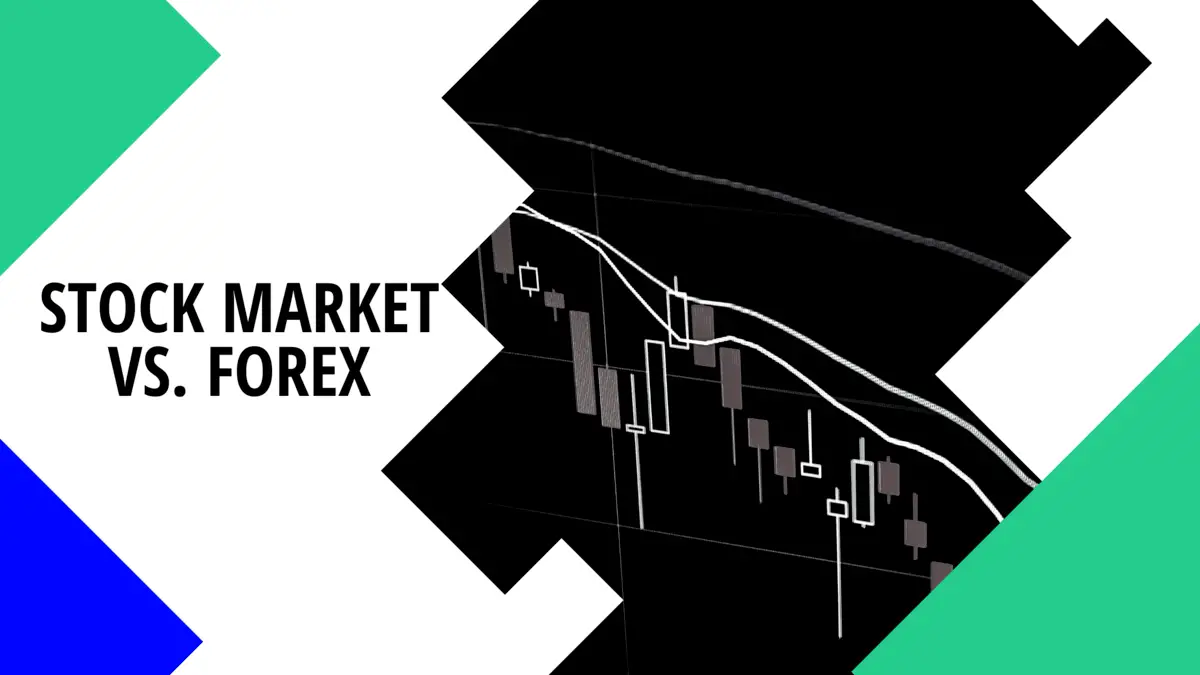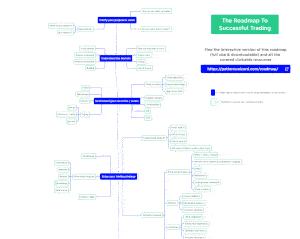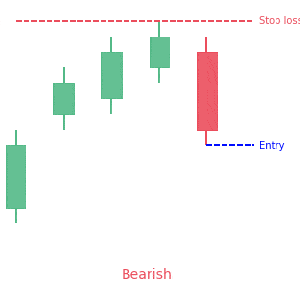Stock market vs forex is a comparison that has mushroomed in popularity in recent years. The number of part-time and amateur traders is increasing rapidly. However, the variety of available options to enter the trading makes it difficult for them to choose between the stock market or forex. This is quite overwhelming for them and rightly so because it is the hard-earned money at stake. Therefore, it is important to know the stock market vs forex, which is better for them.
Stock market vs forex is a very crucial topic to learn. It will help you decide whether to enter the traditional stock market or the foreign exchange market. Given the importance of this topic, we decided to help you. Today’s post is going to help you understand key differences between the two markets and which is better for you. So, let’s begin right away.
Stock market vs forex
Before delving deep into the stock market vs forex debate, let’s quickly look at the overview of both markets first.
Stock markets
Stock markets refer to stock exchanges or other venues that facilitate buying and selling of shares of publicly listed companies. They use an institutionalized formal exchange, physical or electronic, to conduct those financial transactions.
Although stock markets and stock exchanges are used interchangeably, there is a difference. Stock exchanges are actually a subset of the stock market. For example, the US stock market consists of the New York Stock Exchange (NYSE), the NASDAQ, and several other stock exchanges. In other words, traders and investors of the United States of America buy and sell shares on any one or more of the US stock exchanges that are part of the overall US stock market.
Stock markets explained
Firstly, the stock market ensures a highly regulated and controlled environment for traders and investors. That means fair pricing practices and transparency are hallmarks of them. Moreover, every country has its own regulatory authorities that regulate stock markets. For example, the main regulatory authority of the US is the Securities and Exchange Commission (SEC). Moreover, there are also regulatory authorities that regulate traders and investors. For example, it is the Financial Industry Regulatory Authority (FINRA) that regulates traders and investors from the US.
Secondly, stock markets facilitate buyers and sellers of stocks to meet, interact, and transact with one another. Their platforms can be physical or electronic. Thirdly, stock markets also promise fair stock prices, as well as high liquidity as millions of traders hunt for the best prices. Finally, it is also important to know that stock markets also facilitate the trading of other financial securities such as ETFs.
How do stock markets work?
As we have already discussed, stock markets facilitate buying and selling of stocks and other financial securities. They also provide a regulated and secure platform for these financial transactions. But this isn’t the whole story.
Stock markets also provide business corporations platforms to issue and sell their shares. They may act as primary markets or secondary markets for this purpose. However, stock markets must ensure compliance with rules and regulations stated by their regulators.
As primary markets, stock markets allow business corporations to issue and sell their shares for the first time. This process is known as an initial public offering (IPO). Thus, companies generate capital by selling shares to investors. In other words, companies need a marketplace to sell shares to generate capital and stock markets provide that marketplace.
Similarly, when highly successful companies decide to go public, they get themselves enlisted on stock markets. After going public, they also are able to sell their stocks to investors for a price. Simply put, stock markets provide marketplaces to business companies as well as traders and investors and charge fees for their services.
Forex markets
Foreign exchange markets or forex markets facilitate the trading of currencies. There is no centralized exchange as exchange transactions are completed electronically over the counter (OTC). In simplest words, there are no central marketplaces or physical buildings functioning as trading venues for currency exchange. Moreover, all forex traders transact with each other via computers and the internet.
Another unique aspect of forex markets is that they allow non-stop trading. It remains open five and a half days a week. Moreover, the exchange of currencies happens in almost all prominent financial centers across the globe. For example, you can trade currencies in almost every time zone in New York, London, Frankfurt, Zurich, Paris, Tokyo, Sydney, Hong Kong, and Singapore forex markets.
How forex markets work
As we have already mentioned, forex markets allow forex traders to exchange currencies. However, there is no centralized physical venue for trading. Instead, all transactions are completed electronically via computers and the internet. Now, it is also important to note that forex markets allow two types of trading.
The first one is the spot market which allows the trading or exchange of currencies based on trading prices. How do forex markets calculate the trading price of a currency? It is a complex process as numerous factors contribute to determining the price of a security. For example, supply and demand, economic conditions, interest rates, and so on contribute to the set price of a currency. Moreover, a finalized deal between two parties is known as a spot deal. Just like other simple transactions, forex trading is also a deal between two parties. In this deal, one party agrees to deliver a particular amount of one currency and receives another currency at an agreed-upon exchange rate.
Secondly, there are forwards and futures markets. As you know, forwards and futures trading involves a private agreement between two parties to buy underlying currency in the future but at a predetermined price. However, it is important to note that this type of trading isn’t done over the counter. Instead, it happens on exchanges like Chicago Mercantile Exchange (CME).
Stock market vs forex – key differences
There are lots of key differences when we look at the stock market vs forex. Let’s discuss in detail how stock markets are different from forex markets.
1. Trading volume
A detailed analysis of the stock market vs forex gives us the first key difference and that is the gigantic size of the forex market. In fact, the sheer size of the foreign exchange market dwarfs the size of the stock market. How so? Because the average daily volume of stock markets’ is estimated to be around $200 billion. Conversely, the average daily trading volume of forex markets is reported to be around $5 trillion. So, there is a huge difference between the trading volumes.
2. Liquidity
As a general rule, a high trading volume means higher liquidity. That means forex traders can buy and sell their currencies at or very near to their desired exchange rates. Additionally, high liquidity also leads to tight spreads and the lowest transaction costs.
3. 24-hour trading
Another key difference between the stock markets and forex markets is that forex markets offer 24 trading hours. This is because of the different time zones and trading done over the counter. That said, forex traders can trade 24 hours a day and five days a week. Whereas, stock markets have limited trading hours.
4. A few currencies to focus on
There are a few major currency pairs such as GBP/USD, EUR/USD, AUD/USD, etc. for traders to focus on. Contrarily, there are thousands of stocks available for trading. So, forex markets enable you to focus on a few major pairs for trading profit. At the same time, it limits your options and stock markets give you numerous opportunities to capitalize.
Stock market vs forex – which is better for you?
“Stock market vs forex – which one is better?” is a very tricky question. Because when it comes to choosing between the stock market and forex, there are multiple factors that you need to consider. There are advantages as well as disadvantages of both markets. Moreover, it also depends on your personal preferences and trading goals. It is always a better idea to go with the one that might work best for you in your opinion.
So, it is a tricky choice, right! However, we are going to help you decide whether to choose the stock market or forex market for your trading endeavor. Consider the following trading styles and then decide.
1. Short-term trading
Short-term trading refers to a trading style that involves entering and exiting trades within minutes or hours. Traders with Short-term trading mindset don’t prefer to keep their positions open for long as they only seek to take advantage of small price fluctuations. The advantage of short-term trading is that short-term traders don’t need to conduct detailed analyses. On the flip side, they may incur huge losses if their strategies aren’t good enough. Moreover, more trades mean more trading costs. As forex offers the lowest spreads and trading costs, it suits short-term traders.
2. Medium-term trading
Medium-term trading refers to a trading style whereby traders hold their positions for one or more days. This style requires traders to conduct detailed technical analysis as they enter positions based on technical reasons. It also requires comparatively less capital as traders look to capitalize on larger price movements. Traders inclined to this trading style may choose anyone between the stock market and forex.
3. Long-term trading
Finally, there is long-term trading that involves looking to hold their positions for months, even years. Long-term traders rely on detailed fundamental analysis to enter positions. However, they don’t need to spend too much time on analysis. On the other hand, they need substantial capital to cover significant volatile price movements. As stocks are more stable in terms of price fluctuations, stock trading suits traders with such a trading mindset.
The wrap-up
When it comes to the stock market vs forex debate, it is very difficult to get an exact answer. No one can probably say which one is better. Typically, it depends on your own preferences and trading style. For example, forex suits traders with a short-term trading mindset as it offers more price fluctuations to make a profit, and transaction costs are also low. Whereas, medium-term traders may choose any one of the two. Finally, long-term traders should turn to stock markets as stocks don’t tend to vary widely in direction as compared to forex.
Simply put, if you want to capitalize on frequent price fluctuations and make quick profits, forex is better for you. On the other hand, if you are good at conducting detailed analyses and have the patience to wait for months or years, stocks are better. In short, it depends on your preferences when considering the stock market vs forex. However, it is important to remember that trading is a risky game. So, move with great caution irrespective of your choice as it is your hard-earned money that is at stake. Good luck!

 Good Trading requires the Best Charting Tool!
Good Trading requires the Best Charting Tool!

 We loved Marwood Research’s course “Candlestick Analysis For Professional Traders“. Do you want to follow a great video course and deep dive into 26 candlestick patterns (and compare their success rates)? Then make sure to check this course!
We loved Marwood Research’s course “Candlestick Analysis For Professional Traders“. Do you want to follow a great video course and deep dive into 26 candlestick patterns (and compare their success rates)? Then make sure to check this course!